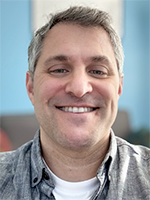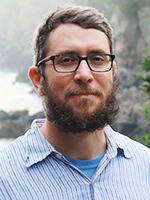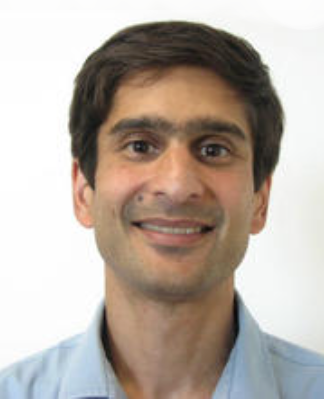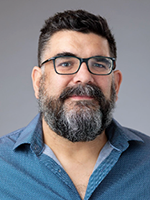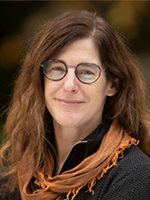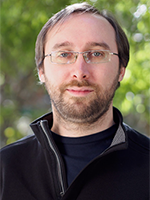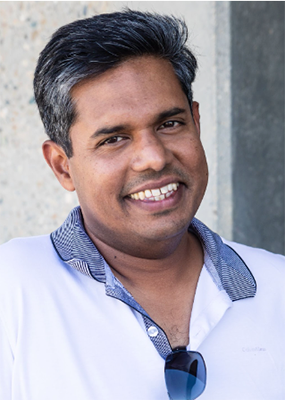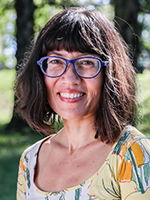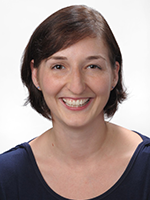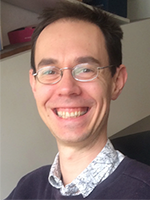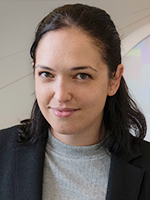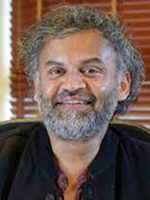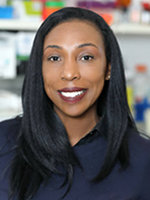Editorial Board of PRX Life
APS Publications Leadership and Management
Editorial Roles in the Physical Review Journals
Editors of PRX Life
Margaret L. Gardel, Lead Editor
Horton B. Horton Professor, University of Chicago, USA
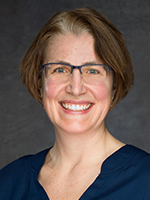
Margaret’s lab studies the physical properties of eukaryotic cells. She is a fellow of the American Physical Society, and received several awards including the NIH Pioneer Award, and the Raymond and Beverly Sackler International Prize in Biophysics.
Serena Bradde, Chief Editor
American Physical Society, USA
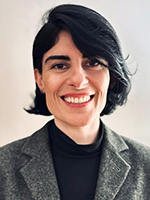
Serena joined the American Physical Society as editor in 2017. Her background in physics includes modeling biological systems. As an editor, she has worked to strengthen peer review at the intersection of physics and biology.
|
Ananya Mondal, Associate EditorAmerican Physical Society, USA Ananya joined the American Physical Society in 2024. Her expertise includes biopolymers, active systems, molecular simulations, and structural biology. She specialized in machine learning-based predictions of large proteins. Ananya is also passionate about promoting diversity in physics through mentorship and outreach initiatives. |
|
Josh Shaevitz, Associate EditorProfessor of Physics and Genomics, Princeton University, USA Josh Shaevitz is Professor of Physics and Genomics at Princeton University. Josh’s group is interested in how life emerges from collections of molecules, cells, and organisms; asking how bacterial cells grow, divide, and move; how collections of cells form patterns; and how and why discrete animal behaviors are generated by the brain. He has received the PECASE award, the Sloan and Pew fellowships, and is a Fellow of the American Physical Society. |
Editorial Board
|
Clifford BrangwynneJune K. Wu ‘92 Professor of Chemical and Biological Engineering, Princeton University, USA Cliff's primary research interests are in the physics of soft living matter, particularly biomolecular condensates, and bioengineering technologies and applications. He is the recipient of numerous awards including a MacArthur Fellowship (2018), Blavatnik Award (2020), Michael and Kate Bárány Award (2020), Wiley Prize (2021), HFSP Nakasone Award (2021), and most recently a Breakthrough Prize (2023). |
|
Michael DesaiFisher Professor of Natural History, Harvard University, USA Michael's lab studies evolutionary dynamics and population genetics in microbial and viral populations using a combination of mathematical models and experimental evolution in budding yeast. He also works on evolution and diversity in the adaptive immune system and on quantitative genetics in budding yeast. |
|
Brent DoironHeinrich Kluver Professor of Neurobiology and Statistics, University of Chicago, USA Brent’s group studies cortical circuits with a focus on the genesis and impact of trial-to-trial and dynamic variability in population-level responses. He has been awarded a Sloan Fellowship, and a Vannevar Bush faculty fellowship. |
|
Adrienne FairhallProfessor in the Department of Physiology and Biophysics, University of Washington, USA Adrienne's lab works on computational neuroscience, focusing on the links between dynamics and coding in systems ranging from single neurons to non-human primates. She has received awards from the Burroughs Wellcome Foundation, the McKnight Foundation, Sloan Foundation and the Allen Family Foundation, the Janet Trubach award from the Society for Neuroscience, the Biophysical Society's Margaret Oakley Dayhoff award, and was a Tocqueville-Fulbright Distinguished Chair. |
|
Hernan G. GarciaProfessor in the Departments of Molecular & Cell Biology and of Physics, University of California, Berkeley, USA As a Physical Biologist, Hernan aims to uncover the quantitative and predictive principles dictating biological phenomena, with particular emphasis on embryonic development. Hernan is the recipient of the NIH Director’s New Innovator Award, an NSF CAREER Award, the Elizabeth D. Hay New Investigator Award from the Society for Developmental Biology. He is also a co-author of the textbook Physical Biology of the Cell. |
|
Ajay GopinathanProfessor of Physics, University of California, Merced, USA Ajay's current research involves using theory and computation to understand biological processes such as the movement of material inside cells, regulation of cell shape, and the collective migration of cells. Honors include a 21st Century Science Initiative Scholar Award from the James S. McDonnell Foundation and being a Fellow of the American Physical Society. |
|
Terry HwaPresidential Chair and Distinguished Professor at the Department of Physics, University of California, San Diego, USA Terry develops theoretical and experimental approaches to gain quantitative, predictive understanding of living systems, and is particularly known for quantitative studies of bacterial physiology, including the establishment of bacterial growth laws leading to principles of resource allocation. He is a member of the National Academy of Sciences and a recipient of the Max Delbruck Prize in Biological Physics by the American Physical Society. |
|
Frank JülicherDirector of Max Planck Institute for the Physics of Complex Systems, Dresden, Germany Frank's research focuses on the physics of living and active matter at different scales from subcellular to multicellular systems. He received several awards, the Robert Wichard Pohl Prize of the German Physical Society in 2006, the Raymond and Beverly Sackler International Prize in Biophysics in 2007, the Leibniz-Preis of the German Science Foundation in 2017 and the first IUPAP Medal for the Physics of Life in 2023. |
|
Jonathan KadmonAssistant Professor (senior lecturer) at the Edmond and Lili Safra Center for Brain Sciences, The Hebrew University of Jerusalem, Israel Jonathan's field of research explores the emergence of computation and cognitive behavior from large neuronal networks. His primary focus lies in understanding learning processes and functional mechanisms in the living brain, alongside a keen interest in the theoretical foundations of machine learning models. |
|
Suliana ManleyFull Professor in the Institute of Physics and the Institute of Bioengineering, Ecole Polytechnique Fédérale de Lausanne (EPFL), Switzerland Suliana's research group develops advanced light microscopy, including super-resolution and adaptive methods, with the goal of discovering fundamental principles behind patterns in the organization and dynamics of organelles. She is a Fellow of the American Physical Society and recipient of the 2019 Medal for Innovation in Light Microscopy by the Royal Microscopical Society. |
|
M. Lisa ManningProfessor of Physics and Director of the BioInspired Institute, Syracuse University, USA M. Lisa uses theoretical and computational tools to study the mechanical properties of biological tissues and other disordered materials, with a focus on predicting emergent behavior such as cell migration, tissue stiffness, and cellular geometries and their impact on biological processes such as embryonic development, wound healing, and cancer tumorigenesis. She is a Fellow of the American Physical Society and received the 2018 Maria Goeppert Mayer Award from the APS, the 2016 IUPAP Young Investigator Prize, a Simons Investigator award, and a Sloan Fellowship. |
|
Thierry MoraDirector of Research at CNRS, Laboratoire de Physique de l'Ecole Normale Supérieure Paris, France Thierry's research interests include how biological function emerges at the collective level from basic interactions, using tools from statistical mechanics and inference. His topics of interest cover immunology, neuroscience, molecular signaling, and animal behavior. |
|
Orit PelegAssistant Professor at the Computer Science Department and the BioFrontiers Institute, University of Colorado, Boulder, USA Orit is leading an interdisciplinary lab aimed at understanding how biological communication signals are generated and interpreted, using insect swarms as a model system. Her honorary recognitions include the NSF CAREER Award, Cottrell Scholar Award, the Complex Systems Society Junior Scientific Award, and a National Geographic Explorer distinction. |
|
Madan RaoSenior Professor at the Simons Centre for the Study of Living Machines, National Centre for Biological Sciences (TIFR), India Madan's research interests include the physics of active systems and their realization in a variety of biological contexts, such as chromatin organization, intracellular trafficking and organelle biogenesis, plasma membrane organization, dynamical organization of the cytoskeleton, tissue remodeling and development. He is a fellow of the Indian Academy of Sciences and the Indian National Science Academy and has received several national awards including the Swarnajayanthi Award and the Shanti Swarup Bhatnagar Award for Physics. |
|
Pierre SensResearch Director and Group Leader at CNRS, Institut Curie Paris, France Pierre is a theoretical physicist applying physical concepts to the study of biological systems, in particular to living cells and investigates the active mechanics of cells, with a focus on cell motility and mechano-sensation. He also studies cellular membranes, and the physical basis of cellular homeostasis such as cell volume and density regulation. |
|
Kandice TannerNational Institutes of Health, USA Kandice integrates concepts from molecular biophysics and cell biology to learn how cells and tissues sense and respond to their physical microenvironment, and to thereby design therapeutics and cellular biotechnology. She has received numerous awards: the 2023 Max Planck-Humboldt medal, 2023 ASCB E.E., the 2021 Arthur S. Flemming award, and the 2021 National Cancer Institute Directors Award for Basic Science. She is also a Fellow of the American Physical Society and the American Society of Cell Biology. She currently serves as the General Councilor and is an elected member of the Board of Directors of the American Physical Society. |

